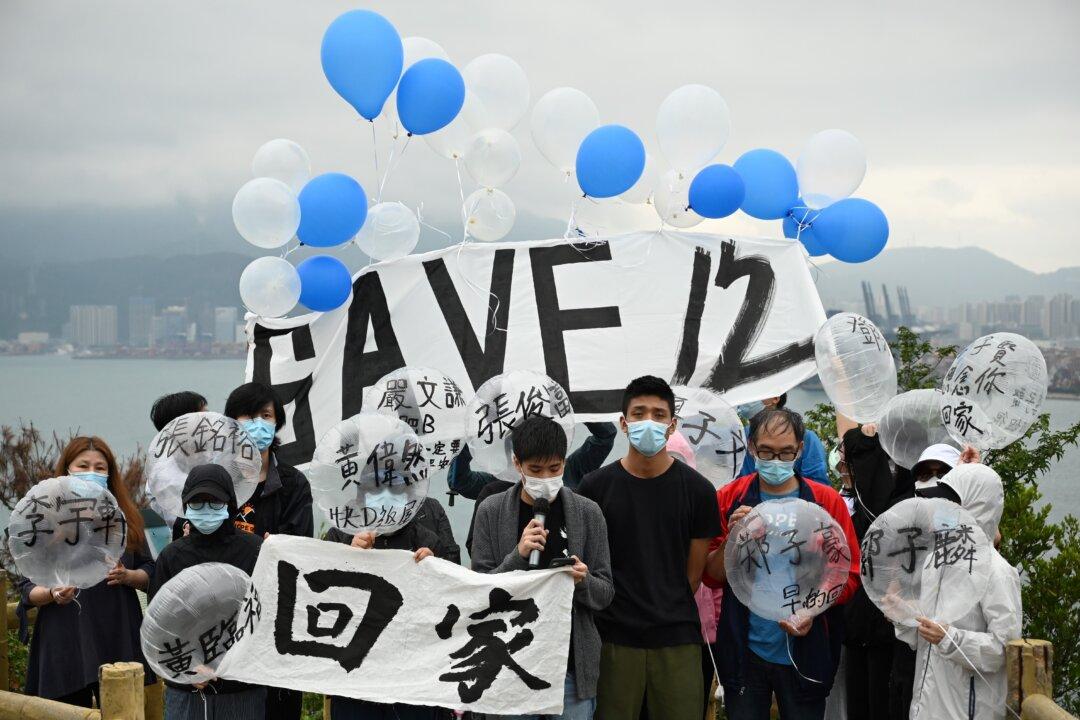Chinese authorities formally announced charges against Hong Kong detainees more than three months after they were first arrested while reportedly fleeing to Taiwan for political asylum.
Two were charged with organizing illegal border crossings while eight others were accused of taking part in a border crossing operation, according to a Dec. 16 statement from the Yantian District People’s Court in Shenzhen city, mainland China, where the activists are being held.





